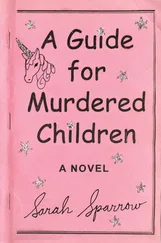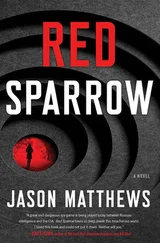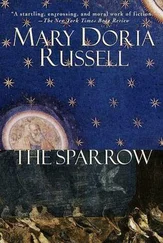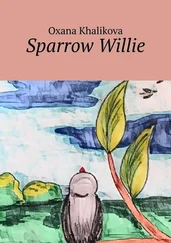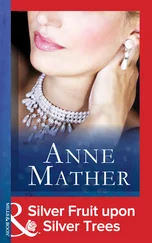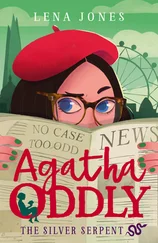Tayari Jones - Silver Sparrow
Здесь есть возможность читать онлайн «Tayari Jones - Silver Sparrow» весь текст электронной книги совершенно бесплатно (целиком полную версию без сокращений). В некоторых случаях можно слушать аудио, скачать через торрент в формате fb2 и присутствует краткое содержание. Жанр: Старинная литература, на английском языке. Описание произведения, (предисловие) а так же отзывы посетителей доступны на портале библиотеки ЛибКат.
- Название:Silver Sparrow
- Автор:
- Жанр:
- Год:неизвестен
- ISBN:нет данных
- Рейтинг книги:5 / 5. Голосов: 1
-
Избранное:Добавить в избранное
- Отзывы:
-
Ваша оценка:
- 100
- 1
- 2
- 3
- 4
- 5
Silver Sparrow: краткое содержание, описание и аннотация
Предлагаем к чтению аннотацию, описание, краткое содержание или предисловие (зависит от того, что написал сам автор книги «Silver Sparrow»). Если вы не нашли необходимую информацию о книге — напишите в комментариях, мы постараемся отыскать её.
Silver Sparrow — читать онлайн бесплатно полную книгу (весь текст) целиком
Ниже представлен текст книги, разбитый по страницам. Система сохранения места последней прочитанной страницы, позволяет с удобством читать онлайн бесплатно книгу «Silver Sparrow», без необходимости каждый раз заново искать на чём Вы остановились. Поставьте закладку, и сможете в любой момент перейти на страницу, на которой закончили чтение.
Интервал:
Закладка:
EVEN THOUGH MY FATHER was a bit on the short side and wore glasses thick as a slice of Wonder bread, there was an uprightness about him that inspired a brand of respect. Even after everything that happened, he never lost this. Much of the esteem he enjoyed had to do with being profiled as a local entrepreneur once in the Atlanta Journal and twice in the Daily World. Witherspoon Sedans was a smal fleet — three cars and two drivers: himself and Raleigh Arrington, his adopted brother and best friend. I could probably count the times that I have seen my father dressed like a regular person and not like a driver. There was no shame in it, however. After al , he was his own boss. When you have to wear dress blues and a hat and you work for white people, you’re wearing a costume. You’re no better than the monkey decked out in a red jacket with gold braiding. But when it’s your own company and you picked the uniform yourself out of a catalog, when it was ordered in just your size and didn’t need to be hemmed or let out, wel , that was different.
It’s no coincidence that he was wearing his uniform when my mother met him that famous afternoon in Davison’s. It’s remarkable, the way he seems almost fused with his clothing. It made him more confident, and when he was confident he stuttered less. And when he stuttered less you hardly noticed his heavy glasses; he seemed tal er.
James was an easygoing man, master of his emotions. “The key to life,” he told me once, “is to avoid the highs and the lows. It’s the peaks and val eys that mess you up.” He liked to behave as though his uninflected disposition was because of some philosophical leaning, but I knew it was because passion of any sort brought out the stammer and turned him into a freak. Anyone who has ever seen James when the stammer rode him could tel how much it hurt him. His face and neck seemed to swel as though the words were trapped in there, painful and deadly like sickle cel s.
And final y, with a jerk, spasm, or kick, the sentence would break free, unfettered and whole.
My parents didn’t real y fight. The most they ever did was “have words,” which was my mother’s expression. Their disagreements were rare because of James’s little-from-the-left-little-from-the right disposition and also because there was no time for bickering. James ate over at our house only once a week, and once or twice a year he spent the night. When we received him in our apartment, seated him at our table, we treated him like the guest he was. We poured Coke with the meal, said grace like it was Sunday, and even let him smoke in the living room. My job was keeping him in clean glass ashtrays. He said his wife, Laverne, made him stand on the porch with his cigarettes, even when it rained.
Most children probably remember their parents’ arguments with a stone-in-the-stomach ache. In the seventh grade, I read a novel cal ed It’s Not the End of the World, about divorcing parents. My teacher gave it to me, quietly, in a plain brown sack, after my mother explained to her that she and my father were separated but possibly reconciling, the perfect falsehood to explain his inconsistent presence in our lives. The book was about a girl who was torn apart by her parents’ fighting. I thanked my teacher for the gift, but my feelings could not have been further from those of the traumatized heroine of that Judy Blume book. When my parents argued, it was over me; for the brief duration of their spats, I was at the center of something.
Mother never argued on her own behalf. It was “always about Dana Lynn.” My father, before he refused to accommodate her demands always, first, insisted that he loved me. There was a time in my life when that was almost enough.
“This is about fairness, James,” my mother would say, indicating to me that what was once a conversation had now morphed into “words.” I could watch my father’s neck bloat a little, as his defenses gathered there.
I am not a particularly graceful individual. I’m no klutz, but a person doesn’t see me move and think, “Those hips were made for swaying” or
“Those toes were born to pirouette.” I am not putting myself down. As my mother would say, “Self-deprecation is not attractive.” And as she wouldn’t say, people in our position cannot afford to make themselves look bad. So when I say that I wasn’t meant to be a dancer, I am just tel ing the basic truth. But that didn’t stop my mother from saying to James, “I think that Dana should enjoy bal et lessons, just as your other daughter does.” She loved that word, enjoy, and I had to admit that I liked it, too.
Turns out, I didn’t literal y enjoy the bal et lessons. When I’d envisioned myself as a bal erina, I saw myself in a lavender tutu with pink ribbons laced up my calves. Instead, I ended up in a hot upstairs room at the YWCA, crammed into a leotard the color of bandages, forcing my bare feet into impossible positions.
When I was about ten, my mother started lobbying for me to take extra classes in science. I was in favor of this, as I liked biology, but at my school we didn’t get to do any experiments. On the last day of the school year, my teacher handed out flyers advertising the Saturday Science Academy at Kennedy Middle School. My mother said that she’d ask my father for the thirty-dol ar deposit after dinner on Wednesday. To prepare, I brushed my hair around the edges and put on a short-sleeve col ared shirt that I thought made me look smart. I stuck a pencil behind my ear.
We ate dinner that night as we always did, at the kitchen table. My mother invited James into the den to watch Tic Tac Dough and enjoy a spot of cream sherry. He smiled and thanked my mother as she handed him a pretty glass.
“James,” she said, “I want Dana to enjoy the benefits of extra tutoring in science.”
James took a smal sip of the sherry. His throat worked to swal ow it down.
“Science is very important,” my mother said. She talked as she walked to stand in front of the television. “There are a number of programs in the city that are open to exceptional children. Don’t you think Dana is exceptional?”
James said, “I didn’t say she wasn’t exceptional.”
“Good,” my mother said. “Because she is.”
I sat at his feet with my pencil behind my ear and tried to sit up exceptional y straight.
“That kind of thing costs money,” James said.
“She has two working parents,” my mother pointed out. James didn’t say anything. My mother sat down beside him on the sofa.
This she said softly: “The Saturday Science Academy makes al owances for female heads of household, you know.”
I had not known about this, and it puzzled me. If she could get me in free, why were we even bothering to involve my father at al ?
“James,” my mother said in a voice that was pleasant on the surface, “why are you so quiet?”
Sitting at his feet, I could feel his legs jerking at my back. The stammer could be like that, the words squirming through his body. With great effort he said, “You know I love you, Dana.”
I gave my mother a sharp look. “Love” meant I wasn’t going to be able to go. “Please,” I said in a voice that was only a squeak.
Mother touched her lips to tel me to be quiet, that I should let her handle my father “Why not? Is it because she’s a pretty girl? I have read that parents don’t make the same investment in the minds of their good-looking daughters. Dana is an intel ectual, you know.”
I nodded, hoping that this didn’t count as getting into the conversation.
“Dana, go and get the brochure and show it to your father.” I pushed myself up from the floor and found my feet. I didn’t even get out of the room before he said, “Ch-ch-chaurisse is taking c-c-classes at the Saturday Academy.”
Читать дальшеИнтервал:
Закладка:
Похожие книги на «Silver Sparrow»
Представляем Вашему вниманию похожие книги на «Silver Sparrow» списком для выбора. Мы отобрали схожую по названию и смыслу литературу в надежде предоставить читателям больше вариантов отыскать новые, интересные, ещё непрочитанные произведения.
Обсуждение, отзывы о книге «Silver Sparrow» и просто собственные мнения читателей. Оставьте ваши комментарии, напишите, что Вы думаете о произведении, его смысле или главных героях. Укажите что конкретно понравилось, а что нет, и почему Вы так считаете.

